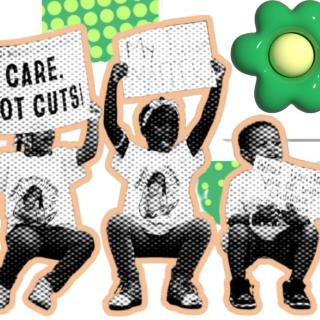Advertisement
Some are calling it the beginning of a “Gen Z uprising” while others are even suggesting American unions could rise out of the ashes as leverage for service sector workers continues to grow.
Starbucks baristas are beginning to organize in two cities and a representative from Workers United – an arm of the Service Employees International Union (SEIU) – told the Free Press Starbucks workers in Columbus have reached out to them.
“Absolutely some have, we are getting calls from every major urban center in the Midwest,” said Pete DeMay, organizing director for Workers United in the Midwest. “I can’t confirm or deny that there are active campaigns in Columbus, because if I say there is there will be a management onslaught. But if and when we go public, I will let you know.”
Indeed, in Buffalo, New York, one of the two cities Starbucks workers are voting to unionize, the company’s highest echelons invaded the city. Showing up at stores unexpectedly to sweep floors and “talk” with workers. Demanding one-on-one meetings with baristas. The founder, Howard Schultz, weirdly referenced Holocaust prisoners during a talk with Buffalo employees. As comical as it’s been, it sure sounds like union busting.
Even so, the National Labor Relations Board is scheduled to count the Buffalo vote on December 9.
“I think it’s deplorable behavior,” said DeMay on the part of Starbucks. “I don’t think they’re going to be successful in busting the union, but they’re certainly trying.”
Arguably the most popular (and expensive) coffee in American history if not the world, Starbucks is also the planet’s largest coffee retailer. Its gross profits for FY 2021 were $20.3 billion, a 28 percent increase from 2020.
“Howard Schultz, the founder, has a net worth of $5 billion dollars,” said DeMay. “I’ve heard from Ohio workers making as little as $11 to $12 an hour. Some receive benefits, but it’s hard to make it on $11-an-hour. Can you imagine?”
Now imagine making that hourly rate and working during the pandemic with all its stressful nuances, such as wearing a mask the entire shift and dealing with severe understaffing. Then top that with what was going on before the pandemic – lines of impatient customers in-store and out, demanding their double espresso latte have the right amount of whipped almond milk.
“Because of the challenges that customers provide – the workers are doing drive through, there’s online orders, and there’s in-person and no one wants to wear a mask – a lot of people are opting out of the industry now,” said DeMay. “And if you’re left there, now you’re doing twice the work.”
The free Spotify and one pound of coffee baristas are allowed per week simply isn’t cutting it anymore. What has worked for Starbucks, however, and what they’ve taken advantage of, is how long-time baristas truly enjoy serving coffee to their community. Thus a major demand driving “Starbucks Workers United” is their desire to let corporate know they are not anti-Starbucks but “we are Starbucks.”
“There’s a lot of interest,” says DeMay about the potential union. “I think a lot of Starbucks employees just didn’t think it was possible. And now that they see it is, they’re like, ‘What about us? We deserve a union too.’”
What is sad for coffee lovers is how they’ve been duped. Starbucks’ union busting in Buffalo clearly exposes corporate America for what it truly believes in.
They may espouse progressive beliefs in advertising – pro-worker, pro-environment, pro-LGBTQ – but in reality it’s all about profits and making sure shareholders get their dividends, which they pay quarterly and has compounded for 11 years straight and counting. Starbucks has also pledged to return $20 billion to shareholders over the next three years through repurchases.
By some estimates there are 33 Starbucks in Columbus and nearly 400 in Ohio.
“Our message to Columbus Starbucks workers is that folks can and should form unions if they want to be true partners with Starbucks,” said DeMay. “I encourage Columbus Starbucks workers to get in contact with our union. Some have already.”



